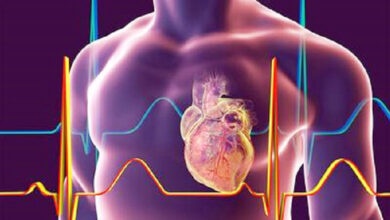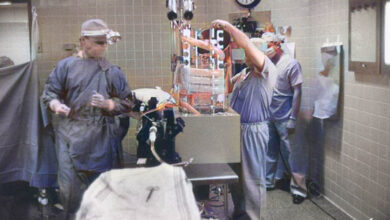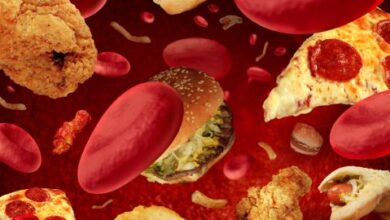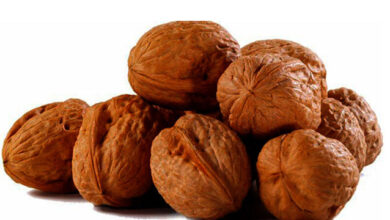Animals in organ transplantation
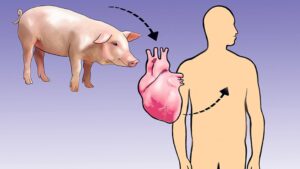
This month, a team of surgical scientists from the School of Medicine at the University of Maryland in the United States successfully transplanted a pig’s heart into 57-year-old David Bennett. It was not possible to keep David alive through any other established treatment method as his heart was weakened due to various ‘cardiac’ problems.
As his death was imminent, he prepared for a new test in medical science. He had agreed to remove Savik’s ‘heart’ and keep the pig’s heart in his body in the hope of surviving on his own. How long David will live on the strength of an animal’s heart is another matter of scientific excavation.
It has been shown that it is possible to ‘transplant’ a ‘critical organ’ like the heart developed in other organisms into a human body through scientific methods. News of the University of Maryland’s ‘heart surgery’ spread around the world at lightning speed, as the pig’s heart had never been transplanted into a human before.
Positive medical discoveries spread rapidly, and in a short time such therapies reach the masses. But we must not forget the fact that the negative use of medical science can do great harm to medical science. In the 1980’s, a baby monkey heart was transplanted in Stephanie Buccles, a baby girl born with a terminal heart problem at Loma Linda University in California, USA.
The heart of the animal was placed in his body only after death was confirmed and other methods of treatment were not effective. Unfortunately, the baby died less than a month after the heart transplant. Further excavations revealed that the baby’s immune system (immune system) had damaged the monkey’s heart by identifying it as an external malignant object, killing the patient being treated.
In the aftermath of the incident, the US Drug Enforcement Administration (FDA) added that there was no other way to treat a patient other than to present evidence that other test methods could not invade the external ‘organ’ when transplanting organs produced in other organisms into humans. The FDA’s code of conduct disrupted the process of heart transplants produced in other organisms in the United States.
After a long hiatus, a team of scientists from the School of Medicine at the University of Maryland transplanted a pig’s heart into 57-year-old David Bennett. The FDA approved the heart transplant only after analyzing all available data and seeing that David was more likely to benefit than risk, said Dr. Bratley Griffith.
Genotransplantation is the process of inserting any non-human organ (organ), cell, fiber, etc. into the human body by any method including transplantation for health benefits. The study / exploration of genotransplantation started decades ago keeping in view the fact that supply of essential organs like heart and kidney is not possible from human beings. After many years of labor and financial investment, the sector has reached a stage of return.
The cells of each creature are different. Humans, monkeys, pigs and all other creatures have different cells. Not only this, with the help of fire even one person is different from another person. Therefore, it is not uncommon for the organs made of cells to differ from animal to animal.
Since the immune system’s only responsibility is to protect itself from external infections, the immune system destroys the cells as soon as they are identified. Our immune system easily recognizes and destroys vital organs of other organisms after a transplant, just as the enemy identifies and destroys them through clothing and cosmetics. So past experiments with xenotransplantation have failed.
It may be pertinent to discuss how long David Bunnett, who recently had a pig’s heart transplant, survived, and what research has been done behind the scenes regarding the innovative experiment. The cells of the immune system are extremely sensitive and sensitive. Not only the cells and tissues of other organisms, but also the organs of other human beings are easily stimulated by our immune system.
Therefore, sometimes there is a problem of ‘organ rejection’ even when a person has a kidney transplant. Therefore, before organ transplantation, various biological tests are done to determine whether the organ is compatible or not, how to make the immune system friendly.
How different are the organs of a human being and an animal if the cells of one human being are different from the cells of another? Therefore, great care is required when transplanting animal parts into humans.
The heart transplanted into David Bennett’s body is not being produced in a market pig. Instead, the pigs in the laboratory were genetically modified in 10 different places. The main reason for so many mutations is that the human immune system does not recognize the external organs easily after transplantation.
Before transplanting an organ of any organism into a human being, it is necessary to study it in many ways and get positive results. As a prerequisite, in 2018, scientists transplanted the heart monkey species ‘Babuns’ produced in laboratory pigs. And looking at the results, positive results came.
Transplanted monkeys survived for more than six months. Scientists were enthusiastic about genotransplantation after the transplant showed that the monkey’s immune system did not recognize the pig’s heart as an external object but readily accepted it.
Then came the scientific claim that monkeys could easily be transformed into humans because of the close proximity of monkeys and human ancestors. The plan was to keep the pig’s heart in humans. Within four years of the monkey test being published, it was reported that the pig’s heart had been successfully transplanted into humans.
The method of transplanting organs of other living beings into human beings was not only a great leap forward for Ayurveda, but also a boon for millions of people awaiting death. One projection shows that by 2030, nearly 100 million people worldwide will be waiting for a heart transplant due to chronic cardiac failure.
Heart donation is almost impossible because it is an essential organ. Thus, following the success of heart transplants at the University of Maryland, farm-produced ‘transgenic’ sugar hearts appeared to be available worldwide for medical use.
No healthy person can donate a heart because of having only one heart. But in the case of Mirgaila, the situation is different. Due to having two kidneys, a person can easily live his life by donating a kidney. So ‘kidney donation’ is relatively easier than heart donation. Former Prime Minister KP Sharma Oli underwent a kidney transplant for the second time almost two years ago.
During the second transplant, Oli’s relative Samiksha Sangraula donated a kidney to save the country’s prime minister. After the kidney transplant, which was transplanted a decade ago, stopped working, organ donation became essential to keep Oli alive. If Oli had been replaced by another citizen, would a second organ transplant have been possible?
The Istanbul Declaration of 2008 issued a code of conduct stating that organ can be removed from the body of a living and dead person and transplanted into another person. After the issuance of the code, no one was allowed to trade in Organ due to greed and financial temptation. Relationships and volunteerism were needed for organ donation.
In poor countries, organ trafficking for money is not uncommon. According to figures released by the 100 member countries of the World Health Organization, in 2014, 80,000 people had kidney transplants. Millions of people around the world are waiting for a kidney transplant, while thousands of patients die every month due to kidney failure.
It is not uncommon for people to die of kidney failure due to the control of kidney donation due to the Stanbull Declaration, the fact that not all kidneys can support the body due to biological reasons and a person can donate only one kidney. Kidney pain also applies to other ‘vital organ donations’ and ‘transplants’, so transplanting animal organs into humans could reduce the risk of malfunctioning vital organs.
Looking at the successful transplantation of the pig’s heart into humans, it seems optimistic that animals will be able to meet the problem of organ deficiency in the world. Organic Failure, which is only raised for food, became a boon for the sick.
Source: https://nagariknews.nagariknetwork.com/opinion/724141-1643088249.html
